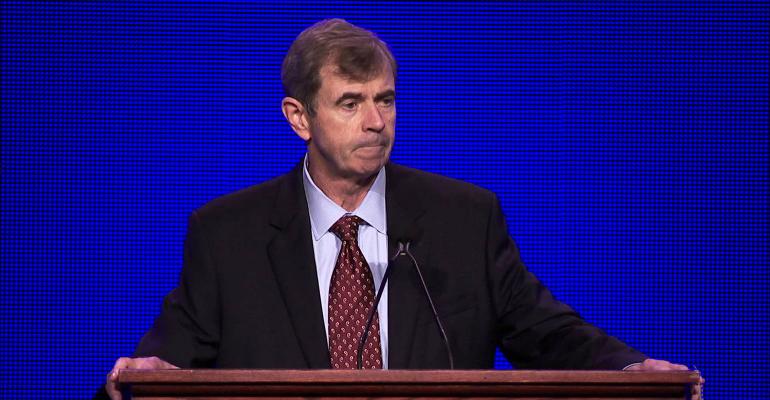Weeks after the Massachusetts Supreme Court ruling against Robinhood upheld the state's fiduciary rule, there are still rumblings about the online trading app trying to take things federal. However, some experts say the rule faces little reversal risk from the U.S. Supreme Court, which could embolden other states to implement their own fiduciary regulations.
The Aug. 25 decision reversed a lower court ruling in favor of Robinhood that effectively struck down Secretary of the Commonwealth William F. Galvin’s fiduciary rule—implemented as a response to what he considered to be the paltry investor protections offered in the SEC’s Regulation Best Interest. Galvin signed off on the rule in late 2019, with an enforcement date the following September.
One major benefit for investor advocates of running this case in state court is that doing so “tends to insulate away” the prospect of federal court review, leaving Massachusetts (and other states eyeing the outcome) more confident in the rule’s future, according to James Tierney, a professor at the Chicago-Kent College of Law.
“I think (the ruling) creates not only precedent for the future, but also space for more breathing room and other aggressive and innovative state regulators to follow along a similar sort of path,” Tierney said during an Institute for the Fiduciary Standard webinar held this week.
To Tierney, the decision represents a “perfect storm” between an aggressive securities regulator in Galvin and a state court that recognizes the investor protection questions at stake and doesn’t punt the decision based on qualms that the legal questions are being adjudicated in the wrong jurisdiction, as Robinhood attempted to argue.
“This is an important recognition by a state supreme court that state regulators have an important role to play in our federal system to level up regulatory obligations and duties when it seems like the federal government is not doing enough,” he said.
Ben Edwards, a professor at the William S. Boyd School of Law at the University of Nevada, Las Vegas, agrees that the ruling will be “wind in the sails” of any state regulators that have heretofore hesitated in moving forward with their own regulations (though he declined to predict specific states that might be moved to act).
“As concerns grow about Reg BI not accomplishing its stated aims, I think the appetite for state action is going to increase,” Edwards said.
If more states start raising the compliance threshold above Reg BI in their own rules, Edwards argues compliance costs could increase as a result of the ensuing “patchwork” of different state regulations advisors would be subject to. As such, he posits that further state aggressiveness could lead to calls for a more robust federal standard.
That said, Massachusetts' specific requirements for Robinhood to continue operation in the state appear fairly meek, said Edwards.
The complaint Massachusetts filed against Robinhood pressed the brokerage app for a number of changes, including addressing improper options approvals and the way it “aggressively” recruited investors for the platform without ensuring the app would remain stable (Robinhood did not respond to requests for comment prior to publication).
Galvin also penalized Robinhood for “effectively recommending trades” without suitability analysis, prioritizing gamification (which Edwards suggested may eventually be captured by the SEC’s proposed rule on predictive data analytics).
But Robinhood can continue operating in the state “so long as it ceases the digital engagement tactics that tend to drive trading activity,” according to Edwards.
“Those influence operations could be easily cut without in any way impeding the ability of Robinhood's Massachusetts users to execute trades,” Edwards wrote in a subsequent email. “Robinhood would simply have to stop bombarding users with information, alerts, and other prompts calculated to nudge them toward active trading.”




